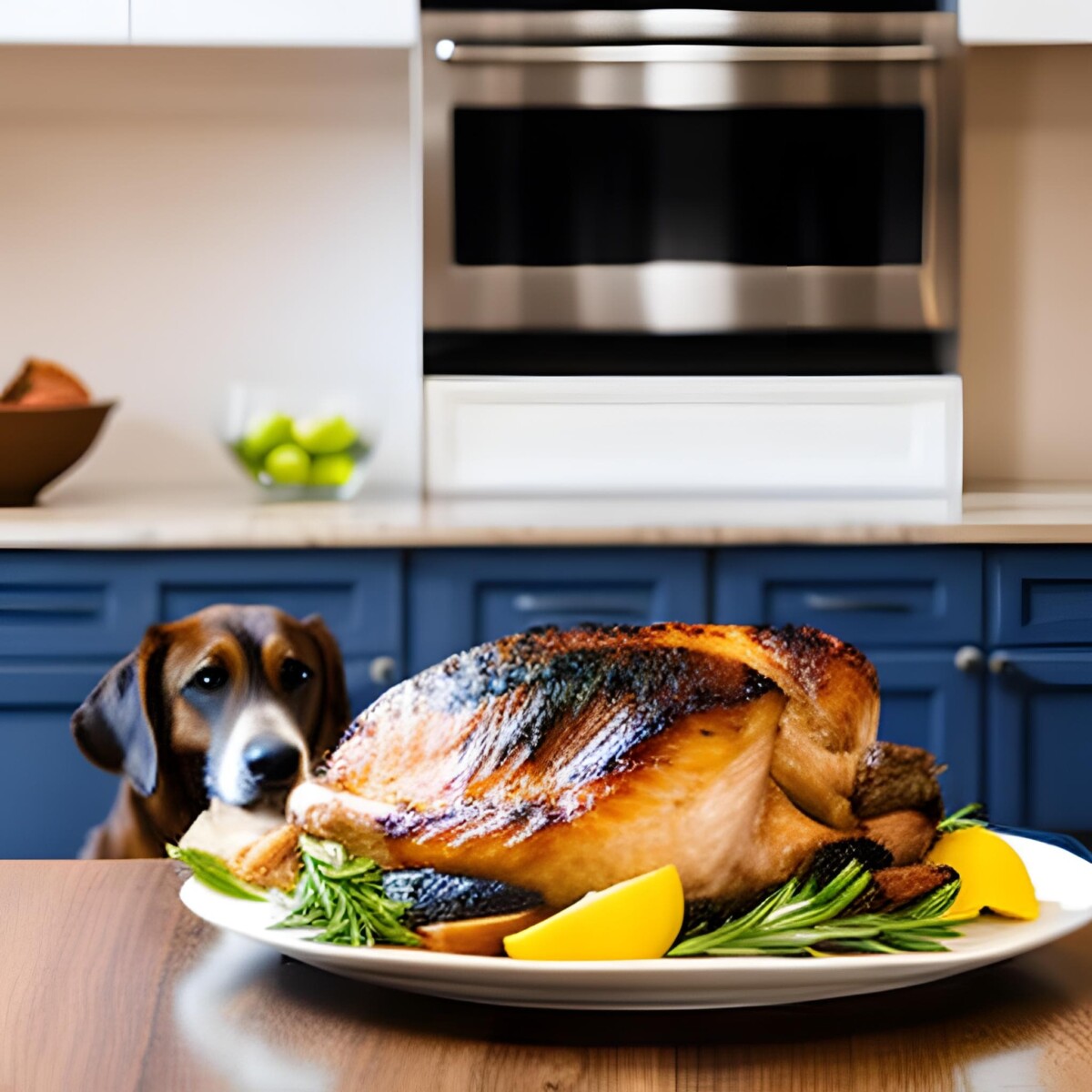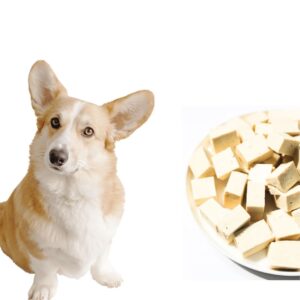When it comes to sharing food with our furry friends, the question of what’s safe and suitable for them often arises. One particular dish that’s often enjoyed during festive occasions is turkey.
But can dogs eat turkey? Is it safe for them? In this article, we’ll dive into the topic of dogs consuming turkey and provide you with valuable insights to ensure the well-being of your canine companion.
Can Dogs Eat Turkey: Table of Contents
Can Dogs Eat Turkey? Nutritional Value of Turkey meat.
Turkey is a good source of lean protein, providing essential amino acids that contribute to your dog’s muscle development, immune system, and overall health.
Additionally, turkey contains important nutrients like:
- vitamin B6,
- niacin,
- phosphorus, which are beneficial for dogs.
Cooked vs. Raw Turkey
Cooked turkey is generally safer for dogs than raw turkey, as cooking helps eliminate harmful bacteria that could potentially lead to digestive issues. Raw turkey might contain pathogens that can be harmful to both dogs and humans, so it’s advisable to avoid feeding raw turkey to your dog.
Potential Benefits
Feeding your dog cooked, boneless, and skinless turkey in moderation can provide various benefits. The lean protein content supports muscle growth and maintenance, and the nutrients contribute to a healthy coat, skin, and immune system.
Risks and Considerations
While turkey can offer nutritional benefits, there are risks to be aware of. Seasonings, spices, and excessive fats commonly used in human cooking can upset your dog’s stomach. Additionally, turkey skin, when consumed in large quantities, can lead to pancreatitis.
Feeding Methods
If you decide to share some turkey with your dog, ensure it’s plain and well-cooked without any added seasonings or spices. Remove bones and skin to prevent choking hazards and digestive issues.
Turkey Bones and Dogs
Never feed your dog turkey bones, as they can splinter and cause serious internal injuries. Always opt for boneless turkey to avoid any potential harm.
Moderation is Key
While turkey can be a healthy treat, it should only be an occasional addition to your dog’s diet. Too much turkey can upset their stomach or lead to obesity due to its calorie content.
Allergic Reactions
Just like humans, dogs can have food allergies. Introduce turkey cautiously if it’s their first time trying it, and monitor for any signs of allergic reactions.
Signs of Toxicity
Certain seasonings and additives used in turkey preparation, such as garlic, onion, and excessive salt, can be toxic to dogs. Avoid sharing turkey that’s seasoned or contains any potentially harmful ingredients.
Thanksgiving Safety
During festive seasons like Thanksgiving, when turkey consumption is common, it’s crucial to remember that some holiday foods, like gravies and stuffings, can be harmful to dogs. Stick to plain, cooked turkey if you’re considering sharing a holiday meal with your pet.
Alternatives to Share
If you’re hesitant about sharing turkey with your dog, consider alternative options like cooked, plain chicken or lean beef, which can provide similar nutritional benefits.
Consulting Your Veterinarian
Before making any significant changes to your dog’s diet, especially if they have underlying health conditions, it’s advisable to consult your veterinarian. They can provide personalized guidance based on your dog’s specific needs.
Vet Q&A
Can dogs eat turkey skin?
While small amounts of plain, cooked turkey skin might be okay, it’s best to avoid it due to its potential to cause digestive issues and pancreatitis.
Is ground turkey safe for dogs?
Plain, cooked ground turkey without any added spices or seasonings can be safe for dogs in moderation.
Can turkey bones be given to dogs?
No, turkey bones can splinter and cause serious harm to dogs. Stick to boneless options.
How should I introduce turkey to my dog’s diet?
Introduce turkey gradually and in small amounts to monitor for any signs of allergies or sensitivities.
Is turkey lunch meat safe for dogs?
Processed turkey lunch meat often contains high levels of sodium, preservatives, and additives, making it less suitable for dogs’ consumption.
My Senior Paws is a participant in the Amazon Services LLC Associates Program, an affiliate advertising program designed to provide a means for sites to earn advertising fees by advertising and linking to Amazon.com. We also participate in other affiliate programs which compensate us for referring traffic.




